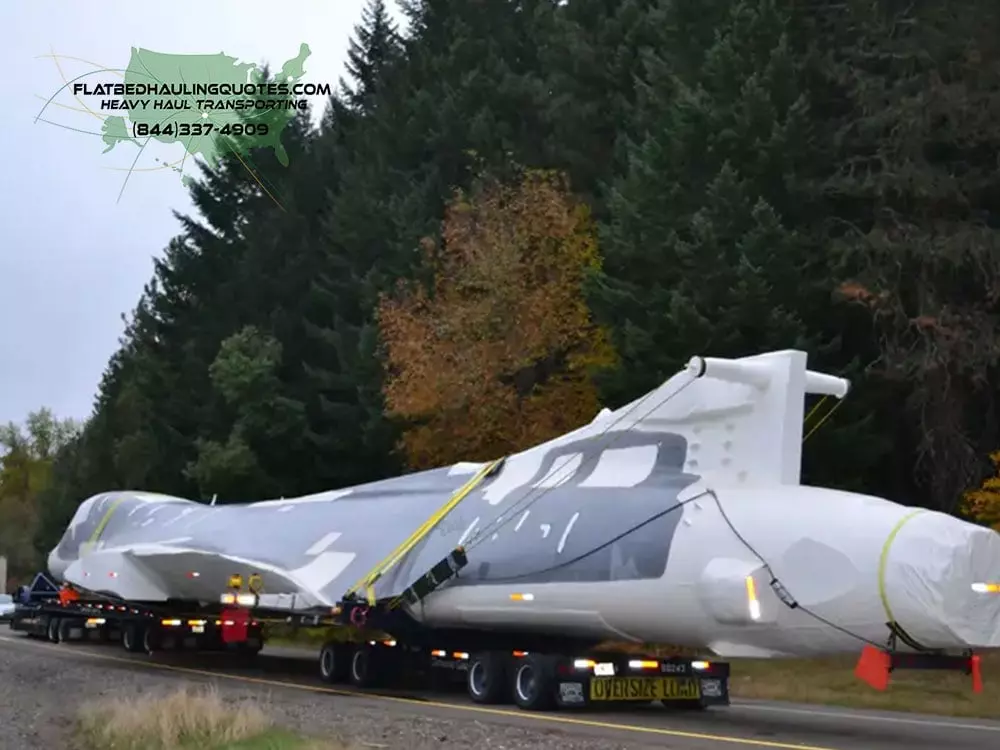HEAVY HAULERS MOVING AN AIRCRAFT ON A FLATBED TRAILER
Moving an Aircraft on a Flatbed Trailer:
Let’s be real—hauling an airplane on a flatbed isn’t like moving your buddy’s couch. It’s a high-stakes game where one wrong move could mean a busted plane or worse. First things first: check the ground. If it’s uneven, you’ll need ramps or lift gates to level things out. Once the surface is solid, the real work begins. Jacks lifts the aircraft off the ground while a crew guides it onto the trailer, inch by inch. No sudden moves, no rushing—just slow, steady precision.
Getting the Aircraft Ready for the Road
Oversized shipping isn’t for the careless. Every wire, tool, and panel needs a once-over before hitting the highway. Some planes even need to be partly taken apart before transport. And if flying it to the destination isn’t an option? That’s where freight experts come in. Their job? Make sure nothing gets messed up so reassembly doesn’t turn into a nightmare.

MOVING AIRCRAFT ON A FLATBED TRAILER
Different Planes, Different Problems
Amphibious Planes—
These things are like the Swiss Army knives of aviation—land on water or a runway, no problem. But that versatility makes them a headache to move. Their engines can be up front or over the wing, and size varies wildly from tiny floatplanes to hulking military seaplanes.
Helicopters—
They can hover in place and land on a dime, but good luck hauling one on a trailer. Those rotors and compact-but-heavy bodies need serious TLC. Whether it’s for rescue ops or tourist joyrides, each chopper has its own transport quirks.
Cargo Planes—
Built to carry freight, not people, these beasts have massive doors and reinforced floors. High wings and multiple wheels keep them stable, but their sheer bulk means route planning is key—low bridges and tight turns? Forget about it.
Jumbo Passenger Jets—
The Boeing 747 is a legend for a reason. Even with faster jets around, its ability to switch between passengers and cargo kept it in demand. Moving one? Yeah, that’s a whole ordeal—think disassembly and a convoy of trailers.
CALL NOW FOR A FREE TRANSPORT ESTIMATE
Loading & Unloading Without Disaster
Safety isn’t just a suggestion here—it’s the law. Fuel gets drained, straps rated for heavy-duty use lock everything down, and oversized load signs are non-negotiable. Sometimes, escort vehicles even roll ahead to warn other drivers.
Unloading is just as intense. Many planes are moved in pieces—wings, tail sections, and fuselage split up to keep things manageable. Less risk for the drivers, less chance of wrecking a multi-million-dollar aircraft.
Why You Can’t Cut Corners
Aircraft fuselages aren’t cheap, and they’re not exactly rugged. Heavy Haul Transporting don’t mess around—we secure permits, dodge obstacles, and use gear tough enough to handle the job. With experience and full insurance, they make sure the plane shows up in one piece. No excuses.



